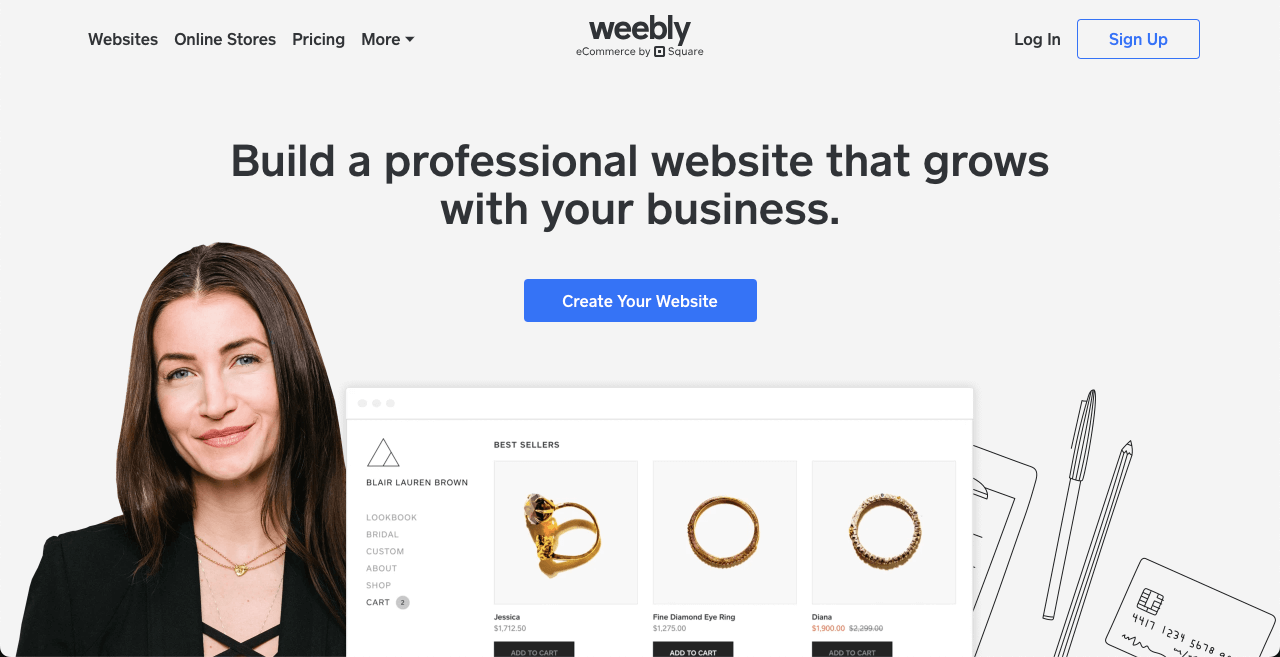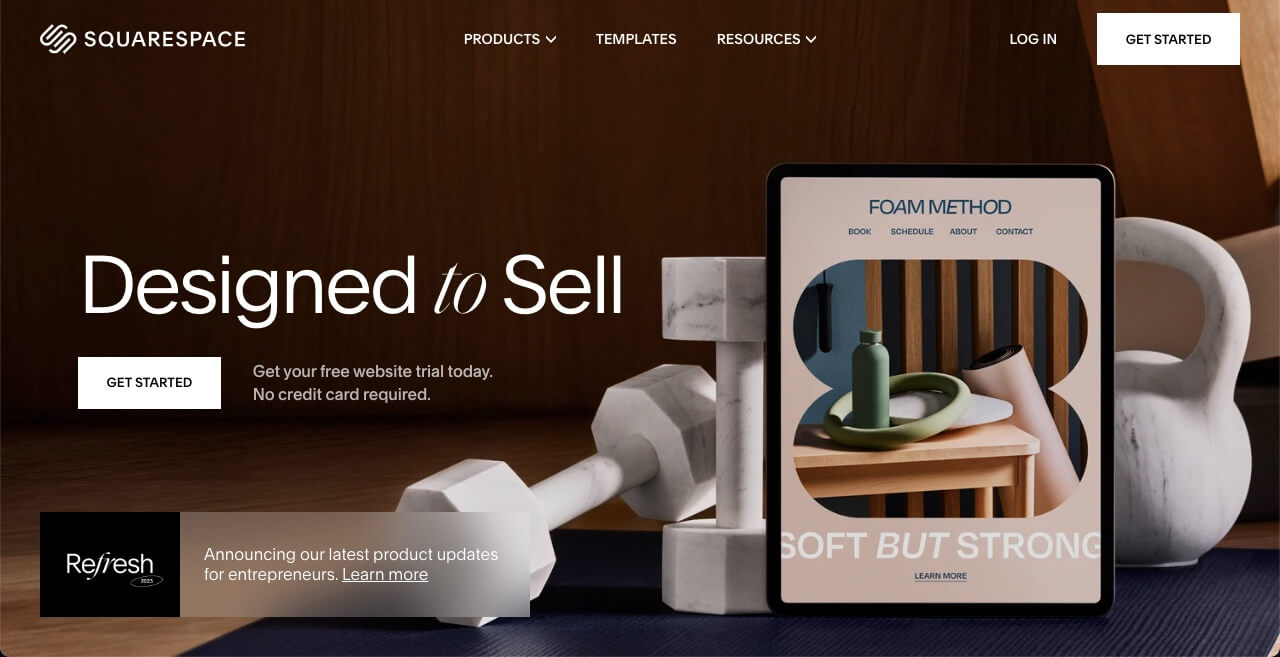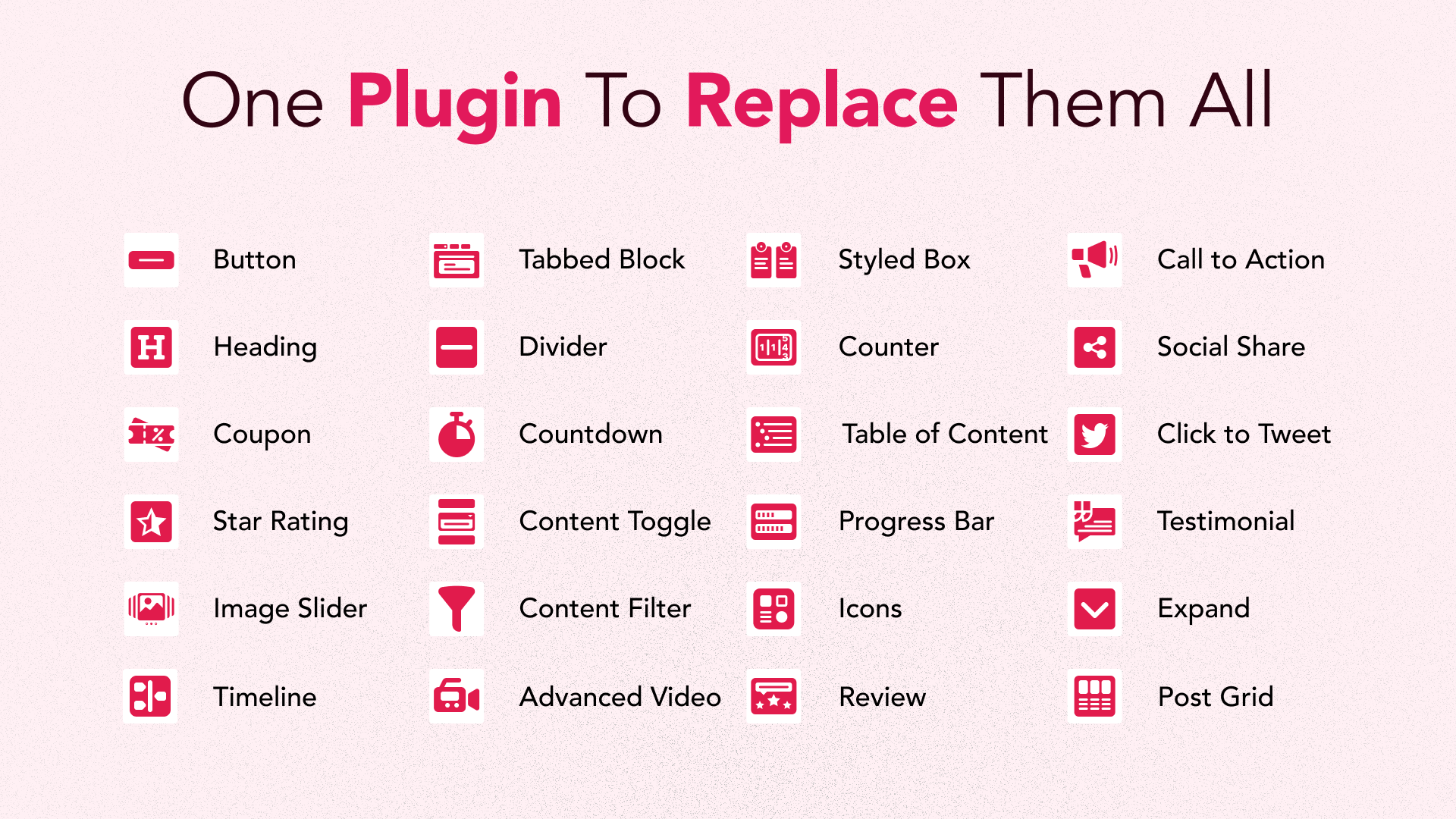
Webflow is an all-in-one website-building platform that allows users to create and launch responsive websites without the need for coding. It provides a wide range of features and tools to optimize the website design and content strategy.
However, Webflow isn’t the only website builder in the online space today. There are dozens of other popular website builders with robust content management systems, where you’ll find even more amazing features and free resources.
We’ll introduce you to some of the best Webflow alternatives in the article, covering their key features, current market shares, and other issues. Below are the alternatives we’ll discuss in this article.
Alternatives | Price | Ratings (G2) | More Info |
WordPress | Free | ||
Wix | Starts at $4.5/month | ||
Weebly | Starts at $10/month | ||
Squarespace | Starts at $16/month | ||
Shopify | Starts at $25/month | ||
Dorik | Starts at $3.29/month | ||
Framer | Starts at $5/month |
Let’s now get into the discussion – best Webflow alternatives for website building
Best Webflow Alternatives
It is really difficult to tell the total number of websites that are currently active in the world. But according to w3techs, Webflow now has a market share of 0.7% in the web-building industry. This means 07% of all websites are built with this technology.
It’s needless to say, w3techs is one of the most reliable platforms for collecting statistical information about website technologies. We’ll use this platform to showcase statistical information on the Webflow alternatives in the following discussion parts.
1. WordPress

WordPress is currently the most popular website-building platform online, with a market share of 43.1%. This is an open-source platform and equally helpful to both users and developers. You’ll find tons of free and premium, well-functional themes and plugins to create any kind of website you want.
WordPress provides a user-friendly interface that anyone can use, even beginners with limited technical knowledge. Its intuitive dashboard allows you to navigate through various menus, options, and features effortlessly.
WordPress isn’t used only for website-building. You can also use it for project management, enterprise resource planning, and various other activities by installing and activating respective plugins.
Key features of WordPress
- Has over 9500+ themes and 50,000+ powerful plugins in repositories
- Offers a built-in robust content management system
- You can manage all types of media files and show them on posts/pages
- Using the WooCommerce plugin, you can create eCommerce sites
- Highly scalable, and it can handle from small blogs to large websites
- Has a large active community of developers and contributors
- Designed with SEO in mind, providing all the necessary SEO settings
2. Wix

Wix is a well-known drag-and-drop website builder with a total of 2.5% market share. It allows you to create visually captivating websites simply by dragging and dropping elements onto the canvas. This makes website development easy by eliminating the need for coding knowledge.
However, Wix isn’t an open-source content management system. It’s a cloud service that you can access and use from your browser. Since it’s a cloud system, you don’t have to worry about its security management system. Wix includes website hosting and domain registration services.
Key features of Wix
- Wix provides you with 800+ professionally designed templates
- It has an app market that hosts 100+ various apps
- You can track your website’s performance using the Wix analytics
- The Wix Logo maker enables you to craft wonderful logos from scratch
- Wix ADI (Artificial Design Intelligence) can quickly create customized websites
- An active support team offers you 24-hour customer support
- You can create a free account on Wix to explore the platform
3. Weebly

Weebly is a beginner-friendly free website builder with 0.4% of market shares. It’s also a drag-and-drop website builder by which you can craft a brand-new website from scratch without coding. However, Weebly tends to place ads on free websites.
But you can easily remove ads by simply upgrading to any premium version. Weebly offers several affordable packages, including a custom domain, hosting, and many other facilities. It provides robust SEO features, helping search engines to find your site.
Key features of Weebly
- 52+ free themes and 54+ free apps in various categories
- Robust eCommerce functionality to build online stores
- Reliable hosting ensures 99% uptime
- Provides built-in contact forms and multimedia integrations
- Supports multilingual translation
- Integrates with all the popular payment systems
- 24/7 customer support for premium customers
4. Squarespace

Squarespace is a remarkable website builder due to its sleek and intuitive interface for crafting new websites. Its current market share is 2.1%. It’s an all-in-one solution because you can host your website and connect a custom domain within this platform.
A standout thing about Squarespace is that the platform emphasizes a lot on design aesthetics. It offers a good collection of well-crafted templates catering to various industries. You can customize them to reflect your brand and personality.
Key features of Squarespace
- Has a drag-and-drop functionality to arrange web elements
- Seamlessly integrates with all the popular social platforms
- Provides 32+ plugins and 140+ customizable themes
- Allows to integrate payment systems like Stripe, PayPal, Apple Pay, and more
- Built-in analytics provide detailed information about the site’s performance
- Active community forums are available to get advice and inspiration
- 24/7 fast and reliable customer support
5. Shopify

Shopify is currently the second most popular web-building platform, with a market share of 4.1%. This platform is highly suitable for building different types of eCommerce websites. Shopify has been hugely popular among dropshippers.
Dropshipping is an eCommerce business model that allows you to sell products to customers without storing inventories. You’ll get tons of apps on the platform to connect reliable suppliers with your websites.
Plus, Shopify is a cloud-based platform. You don’t have to worry about your site’s security. You’ll never find a shortage of necessary apps on the platform needed to level up your website performance and functionalities.
Key features of Shopify
- Has 8000+ feature-rich apps and 100+ customizable themes
- Includes a user-friendly inventory management system
- Offers handy Shopify apps for mobile phones
- Implements the best SEO practices
- Supports integrating various payment gateways
- Easy to scale up as the number of products increases in the store
- Super-fast customers support
6. Dorik

Dorik is relatively a new but promising website-building platform. Although it currently has a market share of 0.1%, don’t overlook Dorik just seeing the figure. You may fall in love with this platform just after exploring it for a few minutes.
Dorik has a free plan which you can use to explore the platform. It has a drag-and-drop design feature with 250+ UI blocks. You can also use its pre-designed templates to get started quickly. Its White Label Dashboard allows you to brand your client’s website as your own from the same dashboard.
Key features of Dorik
- Has 90+ easy-to-use templates and a handful of good apps
- Supports custom domain registration and website hosting
- Integrates with all the popular email marketing solutions
- Offers a built-in form builder
- Allows integrations of various payment gateways
- Provides top-notch customer support
7. Framer

Framer is a versatile drag-and-drop design tool. Although it’s primarily used for prototyping various applications, it can help you design wonderful websites. It provides you with a user-friendly interface where you can create layouts for web landing pages.
You can edit every single part of the pages and make them look responsive on all devices. Framer has a built-in content management system by which you can manage the pages and all sorts of files on the website.
Key features of Framer
- Allows to add dynamic animations to web pages
- Use conditions to hide and display respective elements
- Built with SEO performance in mind
- Comes with a domain and hosting management facility
- Has powerful analytics to monitor the site’s performance
Key Takeaways!
Apart from the seven website-building platforms we have discussed above, there are many other platforms online with millions of active users. But we have hand-picked the above seven as they sounded best to us in terms of user experience.
If you have any reviews over the discussion, we request you to share them with us through the comment box below. Thanks for reading the post. Have a nice day.

Leave a Reply